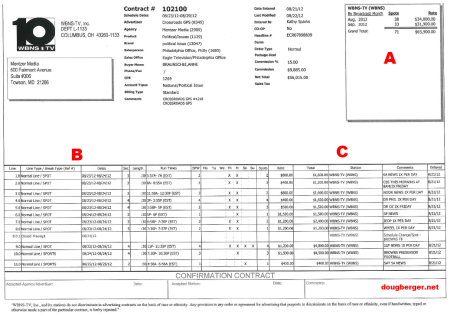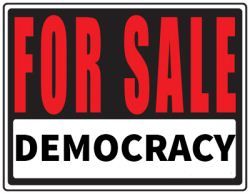
I discovered today that the local station political ad buy forms the FCC required to be put online and the broadcasters fought, are available to search. The database went online on August 2nd but didn’t have to include any information before that date. But even the short time it has been collecting information there is a lot you can learn from the information if your station is in a battleground state like Ohio. Here is a brief tutorial on how to find information if you want to find it.
Broadcast TV stations in the top 50 markets are now required to post information about their political ad sales on a Federal Communications Commission website. The online database, which went live [08/02/2012], is intended to provide easier public access to stations’ political files, which until now could only be viewed by going to the TV stations.
But if you live in a battle ground state like Ohio there is a lot of information now even after slightly more than a month online.
Step 1: Go to the FCC Station Profile page
Then input a call sign (e.g., WXYZ), network affiliation (e.g., NBC), channel number (e.g., 26), or facility ID number (e.g., 123456).
Step 2: Click on the Political files icon
It looks like a star with beams shooting out of it.
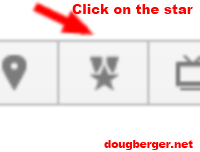
Step 3: Select the campaign you want to look at
It is divided up by Federal, State, local, and Non-Candidate Issue Ads. The Non-Candidate Issue Ads is where the 3rd party ads are recorded.
Step 4: Pick a group to look at
Click on a folder for one of the groups listed.
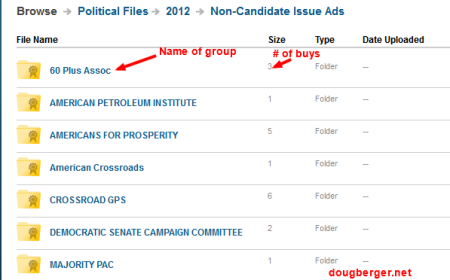
Step 5: Pick a file name to look at
It will load a PDF with images of the ad buy forms
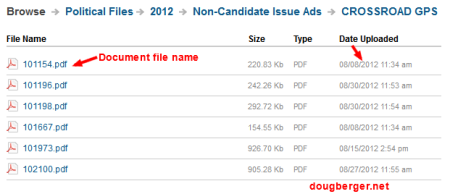
Step 6: Read the form
The information includes the contact info for the buyer, the total amount spent, total number of ads, and then on the form it shows the dates, times, and programs the ads would run.
(click on the image to see it full size)
Here is some more detail about the form:
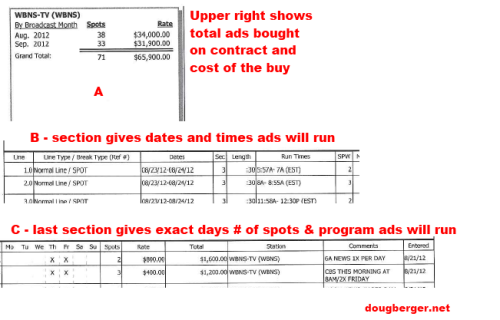
What do you do with this information?
If you hear an ad at a certain time you can find the group that paid for it if not known.
You can see how many buys each group and campaign is making on the station.
If there is group you don’t know about you can use some of the information – like the contact name – to find out what side of the political aisle the group is on.
This information also could help out if you want to challenge a false ad. You would be able to tell if the ad was a local buy or national. Then you know who to complain to without wasting time.
I think in future elections, the FCC database will help manage the new post-Citizen’s United world of political ads.

